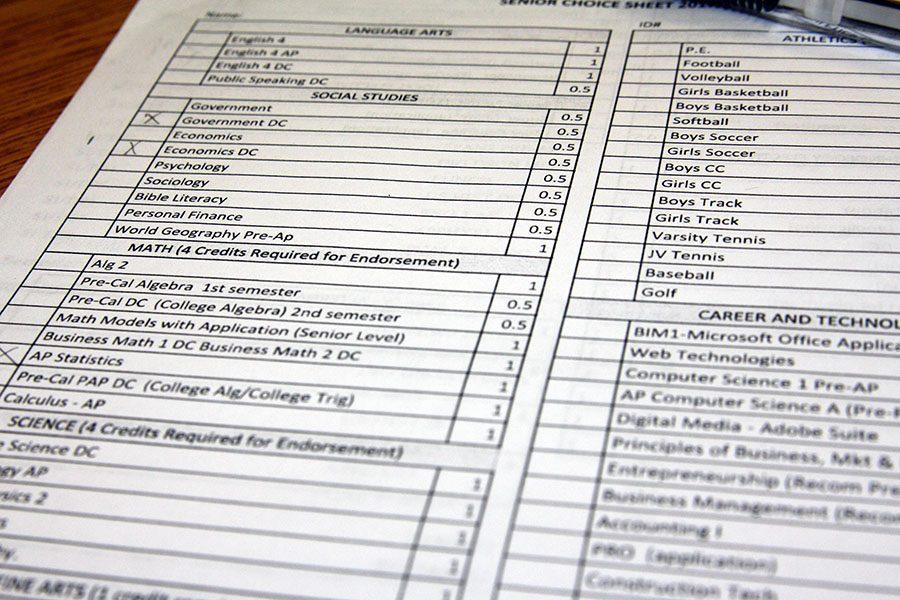Students should prove academic readiness prior to advanced classes
Students are free to select any course level they desire. Currently there are no requirements to qualify students for advanced classes.
A final grade of 75 or 95 no longer seems to concern students as long as they receive a few sacred extra points on their transcript as a reward for taking advanced classes. Coming into advanced classes, students often do not know what to expect. They are told to expect more projects and homework, but one thing they rarely anticipate is how much faster these advanced classes move. While some people are able to keep up and pass with flying colors others are left in the dust, which is why students should be required to pass an entrance test in order to take a Pre AP, AP or dual credit class.
A classroom filled with people of the same level will benefit students and teachers alike. Everyone will vary a little, but classes should honor the students’ and teachers’ time.
— Katelyn Spivey, 10
The tests would not model STAAR tests or semester tests, and it would not hurt students’ grades if they did not pass. Teachers could design a 30 to 40 question test consisting of skills needed to be successful in the class they teach. The beauty of this entrance test is that it would not have to be mandatory. Only students who want to be in advanced classes would take it, and taking the test at the end of a semester could be an option if students did not pass the first time. If they have shown growth and pass the test, they would be able to move up to an AP or Pre AP class. This takes away students’ concerns as to whether they are too advanced for those classes or not advanced enough yet.
A phrase heard repeatedly in Pre AP classrooms is, “This class is to prepare you for AP and dual credit classes next year.” However, students who are unable to keep up in advanced classes often end up holding back the class. Teachers will push students as hard as possible because they don’t want them to be blindsided when they step into their first AP or dual credit class, but by having to go back and constantly reteach students, they are left with less time to prepare the rest of the class for future challenging classes.
Classrooms filled with students varying greatly in their needs take away from the whole point of advanced classes, which is to move quickly through material and go more in-depth into what is being taught. Students may sit in a classroom doing nothing for half of a class period because a teacher is busy helping someone who does not understand what is going on in the lesson.
These entrance exams would benefit students more than the current system is and help diminish stress among students and faculty.
— Katelyn Spivey, 10
While some students tend to push themselves to be in these difficult classes whether they will be successful or not, others are put into them by parents who want the best for their child, and for them to do well. However, placing under-prepared students into these difficult classes potentially sets them up for failure.
Teachers are given the chance to tell students if they think they should take an advanced class the following year, but the school should take it a step further. It should be the school’s job to prepare students for any challenges they may face in their classes.
These entrance exams would benefit students more than the current system is and help diminish stress among students and faculty. Everyone will vary a little, but our school should honor student and teacher time by filling classes with students at the same academic level. By having an entrance test for advanced classes, student’s test scores will go up, stress levels will go down, and students will be learning in a classroom environment going at the speed they need to get the grades they deserve.

Hi there! I am a senior, and this is my third year on staff and second as editor-in-chief. I am choir president and a member of the varsity and show choirs, and in theater, I participate in musical and the One-Act Play competition. I am a self-proclaimed...

Hey! My name is Callie Boren, and I am Co-Editor-in-Chief of the Eagle’s Tale. This is my third and final year on staff. I am also the National Honor Society president, senior class president, an officer in the Chamber Choir, and a member of the UIL...











